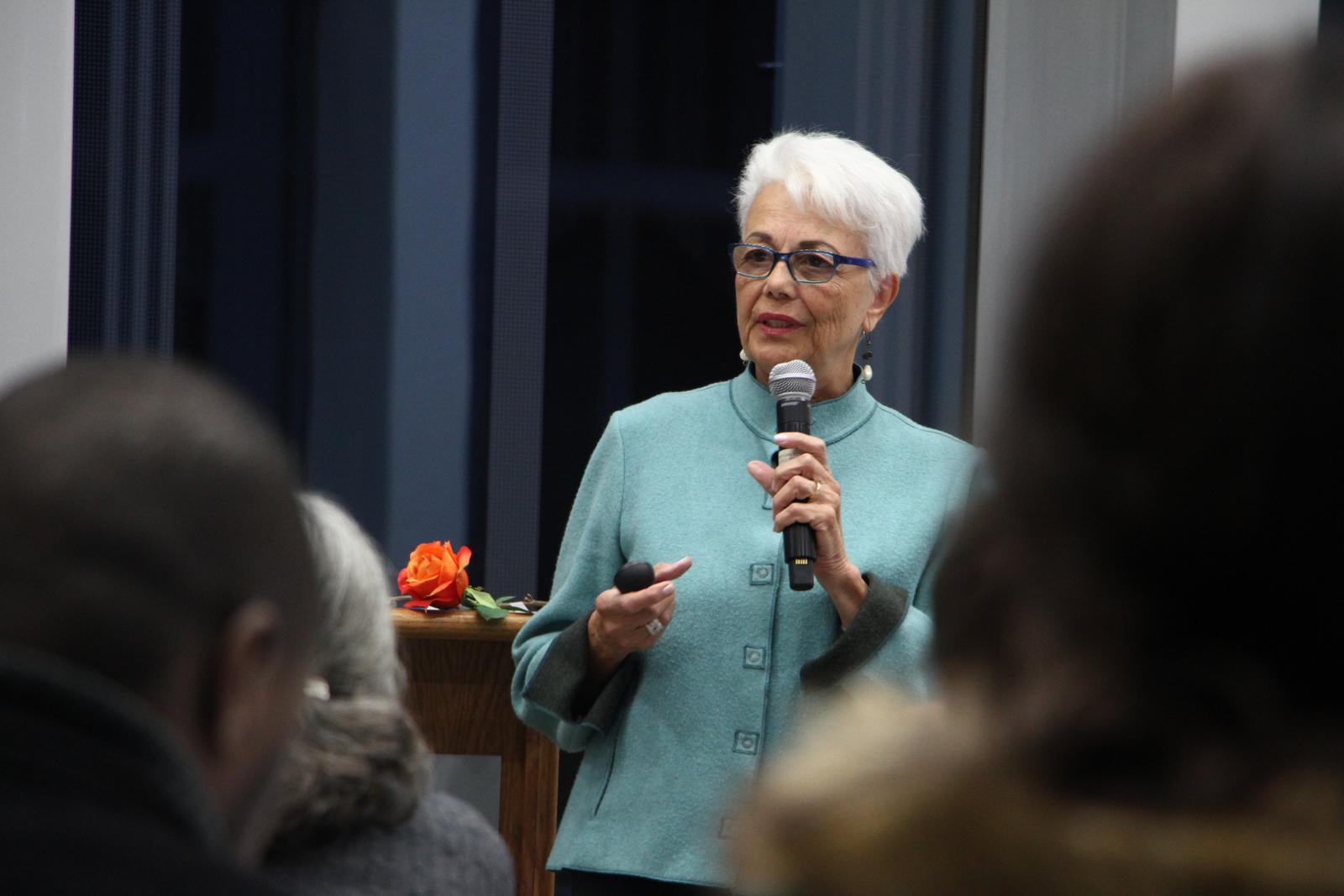
At age 6, Sonia Nieto decided to become a teacher. At age 10 she finished her first novel. But it took much more than ambition and determination to propel Nieto from her childhood home in a Puerto Rican enclave in Williamsburg, N.Y. to a long, productive career as an educator and writer.
It took some luck—and a change in zip code.
In discussing her memoir, Brooklyn Dreams, with a packed house March 3 in New Main Great Hall, Nieto noted that her family’s move from a poor neighborhood to the middle class Flatbush community was a significant factor in her life.
Attending Erasmus Hall, one of the best high schools in New York City—complete with tutors, honors classes and middle-class peers actively planning to attend college—balanced out the fact that she felt invisible as one of the school’s three Puerto Rican students. Having the good fortune to attend Erasmus allowed her to pursue further education and her dreams.
Even while opening the door to opportunity, Erasmus continued the implicit lessons of a devaluing the experience of minority students, which was common in the 1950s.
“We learn to be ashamed of who we are and who our families are if we don’t fit a particular profile,” said Nieto, an award-winning scholar, teacher and urban education advocate.
The social justice implications were not lost on Nieto, who was told early in her teaching career to “leave cultural baggage at the door.”
Since then, multicultural education and culturally responsive teaching has been her calling card. Finding ways to incorporate cultural background and experiences into the curriculum so that students may hang on to their identities without isolating themselves is a central theme of her work. Nieto noted that the trick is balancing that pride with mutual respect for other cultures, which is a must in our diverse and complex society.
“Sonia Nieto’s work is important, because she sheds much wisdom on how teachers can rethink their work to infuse social justice ideologies and practices in their everyday labor,” said Rene Antrop-Gonzalez, School of Urban Education dean, at the event cosponsored by Minneapolis and Saint Paul Public Schools. “In the continued era of neoliberal approaches to public education, Dr. Nieto’s message is one of hope and keeping up the good fight to push back against forces that would rather see our children and youth fail than succeed.”











